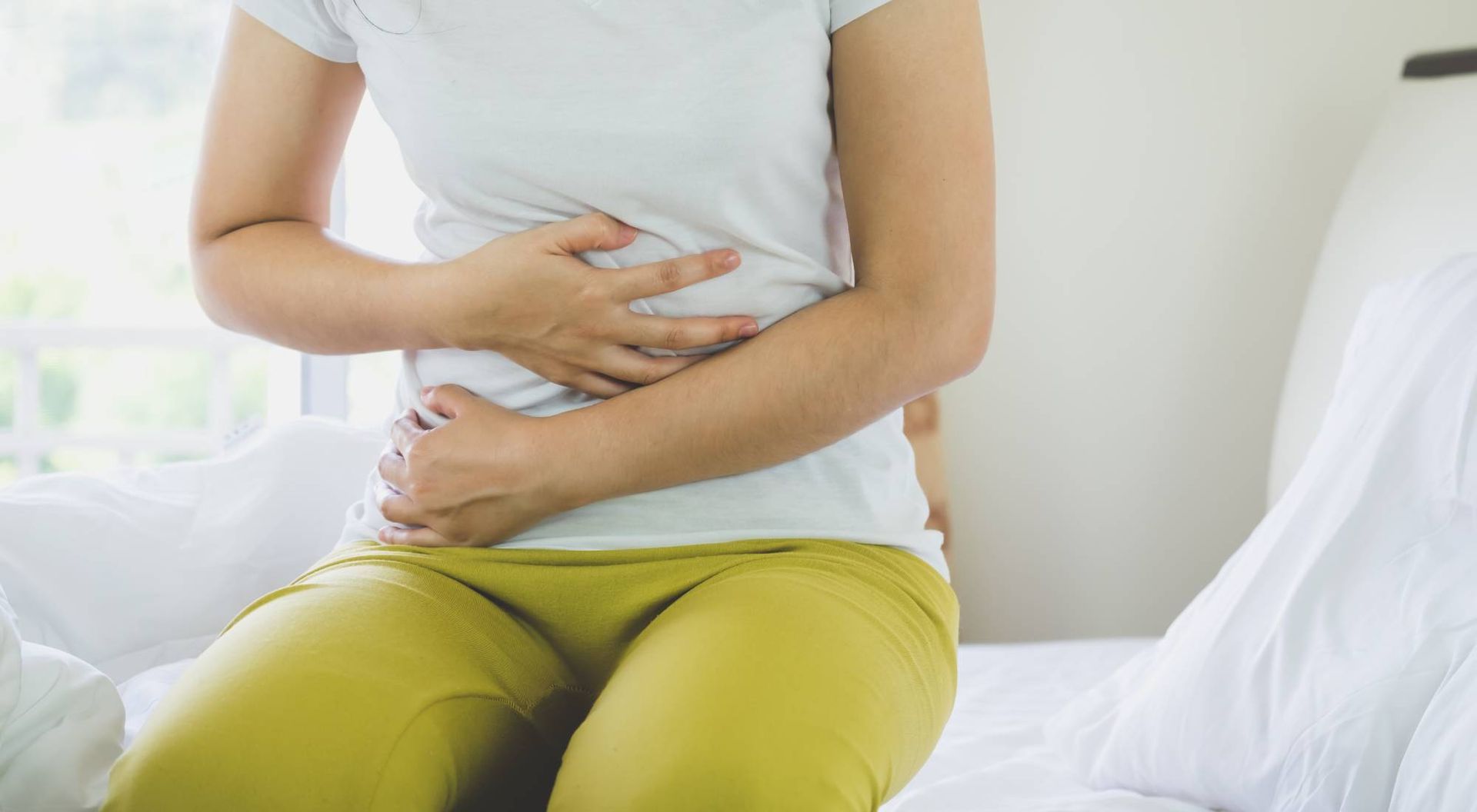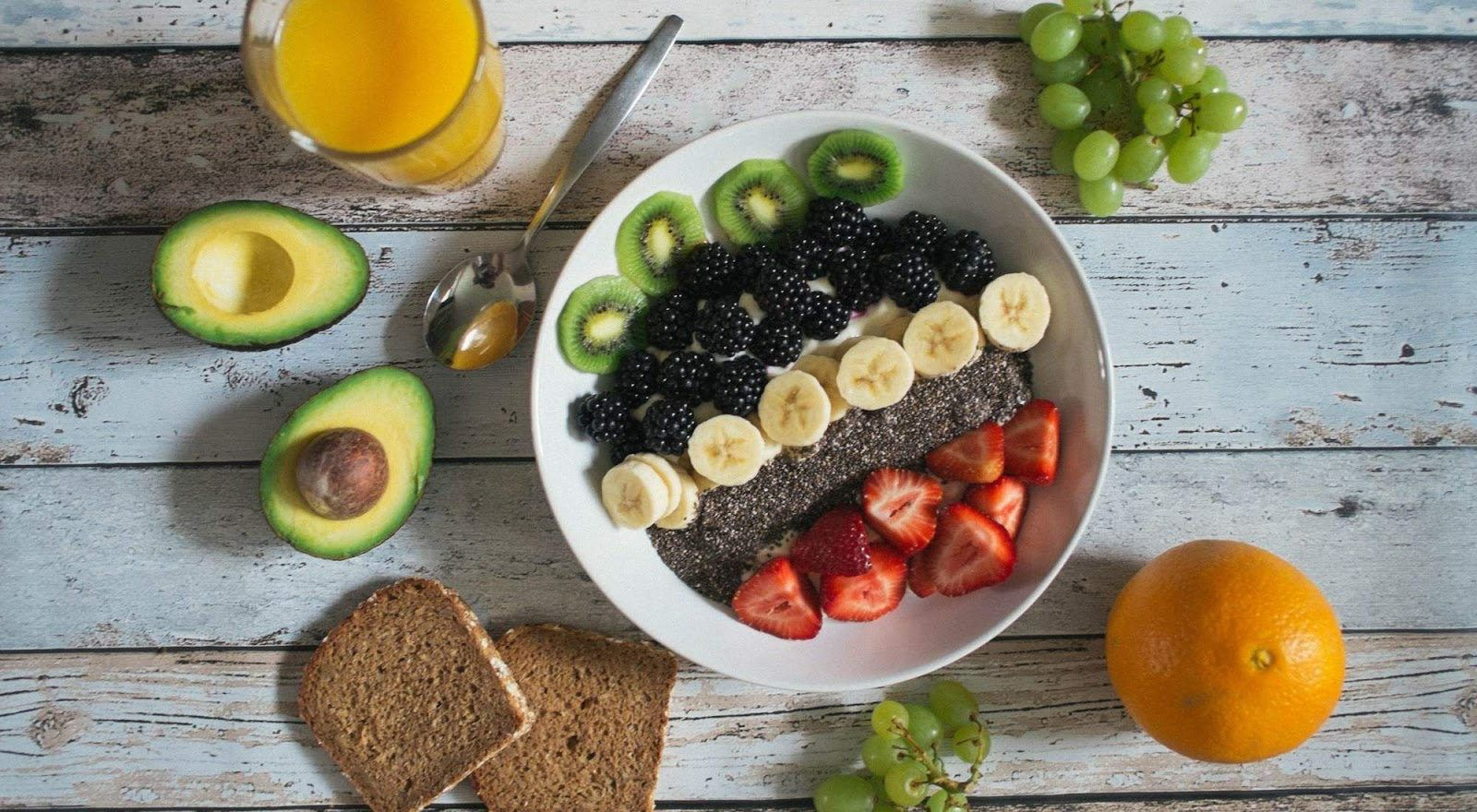Menopause and Constipation: Is There a Connection?
"The content below is not intended to be a substitute for professional medical advice, diagnosis, or treatment. Always seek the advice of your physician or other qualified health provider with any questions you may have regarding a medical condition."
As if the crazy hormonal changes weren’t enough — now you’ve got bloating, gas, and the awful feeling of not being able to empty your bowels.
You knew menopause would be a trip, but can menopause cause constipation?
What can you do to get your system moving and get back to feeling like your normal self again?
In this article, we cover the connection between menopause and constipation, what you can do to get things moving, and when you should seek professional help.
Table of Contents
Can Menopause Cause Constipation Problems?
Absolutely!
As a woman goes through menopause, her body experiences huge changes, some of which can lead to gastrointestinal disturbances such as constipation.
If you’re suffering from constipation in menopause and are looking for safe, natural answers, HealthierU can help. We use Nutrition Response Testing to get to the bottom of menopause discomfort, including constipation.
Contact us today to learn more or to schedule your free consultation.
6 Reasons Why Women Have Constipation in Menopause
#1: Hormonal Changes
One of the major causes of constipation in menopause is the hormonal transitions that take place in a woman’s body during this time in her life.
A woman officially enters into menopause when she has gone without a menstrual cycle for at least a year. This season is earmarked by a drop in the female hormones estrogen and progesterone, which act as chemical messengers and play a huge role in many areas of her body, including her digestive tract.
As progesterone drops, it can cause a woman’s colon to slow down. The longer waste remains in her colon, the dryer it becomes. This is why stools may tend to be drier and harder in texture during menopause.
Estrogen serves many functions in a woman’s body, including keeping her cortisol levels low. Cortisol is known as the “stress hormone” and as estrogen declines, cortisol levels rise. This change can slow down the digestive process, making it take longer than normal for food to break down, and more difficult to pass.
#2: Not Drinking Enough Water
Drinking enough water each day is crucial, whether a woman is in menopause or not, and directly affects digestion.
Failing to drink enough water throughout the day when a woman is in menopause can affect the consistency of her stools. It may keep them from breaking down properly and cause them to be harder to pass.
It is generally recommended that most women should drink around half of their body weight (in pounds) in ounces of water each day. For example, a 160-pound woman should try to drink 80 ounces (or 10 8 oz cups) of water each day.
#3: Inactivity
Often by the time a woman hits menopause, she may have become less active than she was in her younger years.
Maybe she is experiencing joint or back pain, or maybe she’s retired and decided that this is the time in her life to “take it easy.”
This lack of movement in menopause can be a contributing factor to constipation.
#4: Diet Choices
We've already learned that the hormonal changes that come with menopause can make a woman's gut move more slowly. Add to that a diet that is lacking in fiber, and a woman may be setting herself up for constipation.
Some foods — like cheese, dairy products, fried foods, white bread, rich desserts, and high-fat meats — can increase the likelihood of
constipation in menopause.
#5: Medications
Medications may also play a factor in slowing a woman’s system, including her bowels. Medications that may increase the risk of constipation include things like:
- Narcotics
- Antidepressants
- Anesthetics
- Opioids
- Calcium channel blockers for hypertension
- Iron or calcium supplements
If you’re taking a medication that is known to cause constipation, try to balance out its effects by implementing some lifestyle strategies, like upping your water intake, eating more high-fiber foods, and moving more throughout the day.
#6: Weakened Pelvic Floor Muscles
As a woman ages, her pelvic muscles often lose their tone and elasticity, which may contribute to constipation in menopause.
If your pelvic floor muscles get too weak, it can reduce the structural support of your organs and lead to things like a prolapse of the bowel, bladder, or vagina.
If you’re struggling with constipation during menopause, it may be worth speaking with your doctor about pelvic floor physical therapy to increase the strength of your pelvic:
- Organs
- Muscles
- Ligaments; and
- Connective tissues
A stronger, more aligned pelvis will keep waste flowing as it should and make it easier for you to have a bowel movement.
7 Ways To Find Relief From Constipation During Menopause
#1: Change Your Diet
Eating a diet that is high in fiber may help speed up your digestion and reduce or eliminate constipation in menopause. Fiber helps bulk up your stools, so they can more easily pass through your colon.
It's recommended that women over 50 eat at least 21 grams of fiber each day. Try switching out some of the things you normally eat with higher-fiber, healthier food options, such as:
- Whole grains like oats and brown rice
- Fruits, including raspberries, apples, and pears
- Vegetables like broccoli, carrots, Swiss chard, and peas
- Legumes such as lentils and black beans
- Nuts and seeds, like almonds, walnuts, and pumpkin seeds
#2: Drink Plenty of Water
Boosting your water intake is a great way to help ease the effects of constipation in menopause.
Increasing the water content inside your gut can help stimulate bowel movements, soften your stools, and make them easier to eliminate.
A good indicator that you're on the right track with your water consumption is if your urine is pale yellow.
#3: Change Your Toilet Posture
Did you know there's a right way and a wrong way to poop?
Studies show that when you use a squatting position, it can help to empty your bowels more effectively. This is because squatting changes the angle of your body and allows the muscles in your pelvic floor to relax and let waste pass.
Remember the famous sculpture, "The Thinker," where the man is sitting, leaning forward, and resting his elbows on his knees? This position, with the addition of a small step stool underneath your feet, creates the perfect 90-degree angle for emptying your bowels.
It's also important to “go” when you feel the urge. Ignoring the urge to poop can confuse your bowel muscles and make them less likely to work efficiently.
#4: Try Abdominal Massage
Massaging your abdomen can be a helpful way to relieve constipation during menopause.
The ILU method of abdominal self-massage involves making small, circular strokes in the pattern of an I, L, and U, that follow the path of your large intestine.
This gentle form of massage can help increase the movement of food through your gut and relieve menopause constipation.
#5: Don’t Become Dependent on Laxatives
While using laxatives may sound like a great idea, they often make constipation worse, particularly if your body becomes dependent on them.
If you are considering trying laxatives, proceed with caution. They can help relieve constipation, but they can also easily be overused. If taken too often, your body can become dependent on laxatives and decrease your colon's ability to contract naturally.
If you decide to give laxatives a try, opt for one of the gentler natural laxatives, such as:
- Castor oil
- Aloe vera
- Senna tea; or
- One that contains psyllium or methylcellulose, like Metamucil or Citrucel
#6: Get Active
A great way to fight constipation in menopause is to keep your body moving.
There's no need to join CrossFit unless that's what you love. Staying active can be as simple as:
- Taking a brisk walk.
- Playing a game of pickleball.
- Going for a bike ride.
- Swimming a few laps at your local pool.
Daily exercise will help regulate your bowel movements and reduce constipation. Just be sure to speak with your physician before starting a new exercise regimen.
#7: Try Magnesium
Magnesium is an electrolyte that is naturally found in your body. But if your magnesium levels are lower than they should be, you may suffer from constipation.
Adding additional magnesium to your diet is a widely known remedy for constipation due to its laxative effect.
Magnesium can help with constipation in two ways:
- Magnesium causes the muscles in your intestines to relax. This can help move waste more smoothly through your bowels.
- Magnesium acts as a stool softener by drawing water into your intestines as an osmotic laxative. This additional water helps kick your bowels into motion, while also softening and increasing the size of your stool. This action stimulates a bowel movement and helps to make it easier to pass.
If you’re interested in adding more magnesium to your diet you can do it through supplements, or by eating more magnesium-rich foods, such as:
- Pumpkin seeds, almonds, peanuts, and cashews
- Black and lima beans
- Brown rice and quinoa
- Dark chocolate
- Leafy greens like spinach, kale, and collard greens
When Is It Time To Seek Help for Symptoms of Menopause and Constipation?
If you’re a menopausal woman and have been experiencing extreme symptoms of constipation for more than three days, it’s wise to get your symptoms checked out by your doctor to rule out any underlying medical condition. These symptoms include:
- Nausea
- Vomiting
- Blood in your stool
- Unintentional weight loss
- Severe bloating; or
- Severe abdominal cramping
HealthierU Can Help Find the Reason for Your Constipation Problems
Navigating menopause can be tricky enough, but constipation can make it an even more stressful time.
Nutrition Response Testing at HealthierU can help.
Learn more about this natural, non-invasive way of determining the underlying causes of constipation during menopause, and find out how Dr. Donna Sergi can help by creating a plan to safely get your system back on track.
Contact HealthierU in Brooklyn, NY, today to schedule your free consultation.






